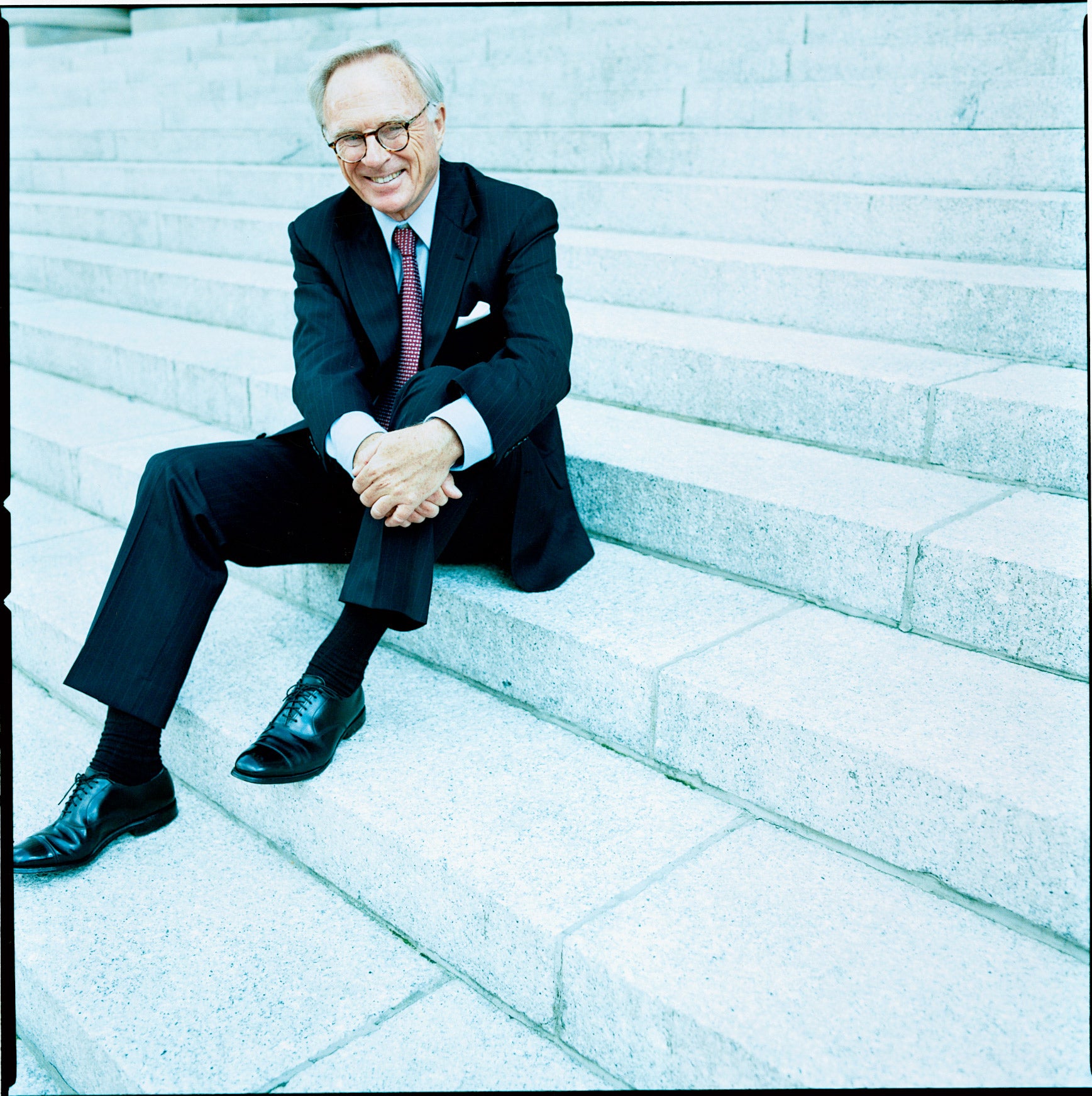On the Legal World and Coral World
Cornelius Prior ’62 is chairman and CEO of Atlantic Tele-Network Inc., based in St. Thomas, Virgin Islands. After graduating from HLS, Prior was a Fulbright Scholar in Brazil, an associate in a Wall Street law firm, general counsel of a development bank in Japan and, for many years, an investment banker in New York City. He is a member of the HLS Dean’s Advisory Board and the Visiting Committee.
Based on your diverse career experience, do you have anything to say to today’s HLS students?
I think they should be extremely pleased simply to be studying law because that experience will stand up well as they go through life, whether they stay in law or pursue other careers. I don’t think there’s any field left that doesn’t benefit from having a legal background. The world is increasingly complex, and law becomes more and more important as society becomes more complex.
Is there anything else you think the law school needs to do to prepare people for this complex world you’re describing?
It seems to me that basic legal training is still the key to success. Just as you can never really replace reading, writing and arithmetic, I don’t think you can ever replace the study of contracts, the study of constitutional law and so on. So I think sticking with the fundamentals is the best foundation.
You’ve been active bringing new music and culture to St. Thomas. What motivates you to do this?
I lived in New York City for 25 years, and when you move to a town of 50,000 people, you tend to miss the things that are exciting about New York. So my first motivation was very selfish–just to try to bring more of the music I used to like in New York to St. Thomas. Secondarily, I’m on the board of a local school, and I saw that there was a real need for better-quality entertainment–to bring more of the classics to the island.
You’re also the co-owner of something called Coral World. Can you explain what that is?
Coral World is an aquarium and undersea park where you can get close to the marine life of the Caribbean. In the undersea observatory, you can see noncaptive fish and corals while remaining entirely dry, or you can go walk around the observatory underwater with just a helmet on to mingle with the fish. Coral World had been badly damaged by Hurricane Hugo in 1989 and then done in by Hurricane Marilyn in 1995. The people who owned it were not going to rebuild it, so my wife and I and some other local people pitched in to get it rebuilt. It’s been a major educational tool for the kids on the island as well as an attraction for tourists. We’re hoping that someday it might even be profitable.
You’ve been a big supporter of the law school. Is there a particular reason you support HLS in the way you do?
I’ve spent quite a few years of my life working in developing countries, and I’ve become increasingly convinced that for these countries to be able to improve themselves, they have to develop the rule of law. It’s the rule of law that enables investment to go into these developing countries to create the jobs which then bring about a lasting improvement. It isn’t going to happen if we just give them bread and wine from time to time; we have to help them help themselves.
So it’s not just about supporting HLS; it’s about the ripple effect.
Yes, since my alma mater happens to be the best at educating and preparing young lawyers, helping HLS was the obvious solution.
